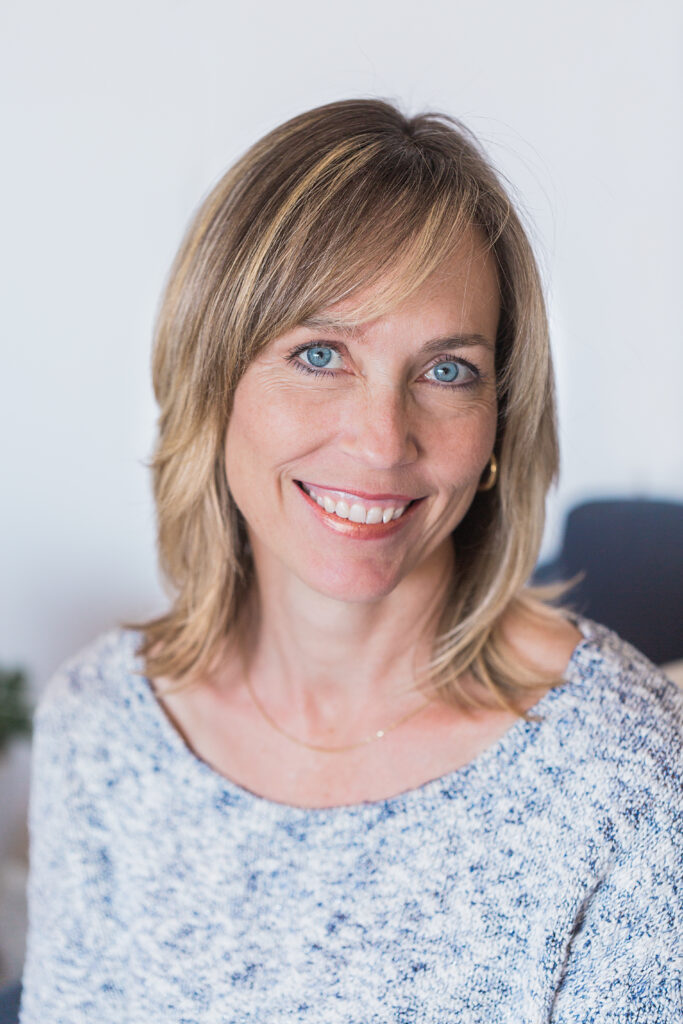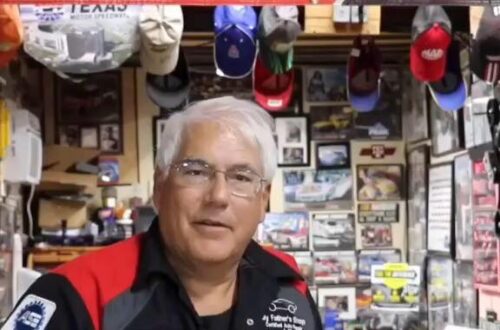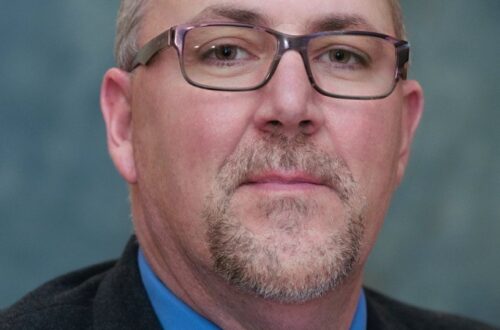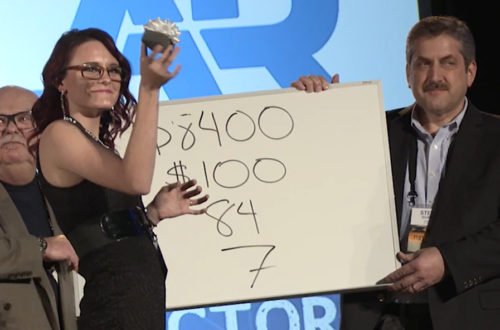Beth Rutter Shares Sneak Peek of Pilot Program

Four guest speakers attended the St. Louis I-CAR Committee’s September virtual meeting, including collision repair industry professional Beth Rutter who spoke about the Pilot Program. Rutter graciously agreed to share some additional information with Autobody News.
The Pilot Program originated three years ago at Ranken Tech, where Collision Director John Helterbrand designed an apprenticeship program to ensure that collision students are prepared to successfully enter their career after graduation. Students work with mentors at local shops, obtaining hands-on repair experience in conjunction with classroom education, as the taught tasks begin with the most mundane and progressively advance as the student’s knowledge and skill advances. “Students rotate between eight weeks in the classroom, followed by eight weeks at a shop where they implement the techniques they just learned,” Rutter explained.
After safety, process is the second most important thing that schools teach collision repair students. According to Helterbrand, “An educator without a textbook can’t do much, but if you can take it home, you can do a lot of work on that. We [must] maintain a high level of educator for students. Our program is a little harder in the sense that we make the students focus on themselves, but we make them lifelong learners. So, it’s all about taking care of the student.”
A currently-silent industry partner recognized the value of Ranken’s Pilot Program and proposed expanding it nationally. “We need more than just a curriculum to address the issue of our fractured industry,” Rutter emphasized. “Recognizing that entry-level techs need a basic level of knowledge in order to be trainable and hirable, we decided to start with the colleges. Some graduates can be hired right out of school because they’ve obtained the knowledge they need to start in a shop; others aren’t even close – collision repair curriculum isn’t consistent across all colleges, and we are working to address that.”
The mission of the National Pilot Program is “To be the catalyst in the development of national ‘school-to-work’ Collision Educational Programs at the post-secondary level by bringing the collision industry and colleges together in a collaborative partnership that not only increases the number of qualified technicians available to the industry but allows students to be mentored in a supportive environment that improves the image of technicians and the collision industry as a whole.”
With decades’ worth of collision repair industry experience, Rutter got involved with the program to communicate with the shops and the schools. “We have to get the shops’ buy-in for mentoring the students, and then the colleges have to agree to implement the curriculum we’ve developed, which is ASE-accredited. There’s a lot of benefits for the schools, though. They receive a lot of support and an I-CAR curriculum, plus by the time the student finishes the program, they are Pro-Level 3 and able to obtain their welding certification as soon as they test.”
Four colleges are currently participating, though three of them will not have seated classes until January 2021 due to COVID-related concerns. Students at Ranken Tech and at the College of Lake County in Illinois are currently learning in the classroom and interviewing with local shops that meet the program’s criteria. Mentoring shops must be I-CAR Gold Certified, use updated tools and equipment, and have a mentor that can “take students under their wings,” Rutter said. The current mentor shops include several large MSOs as well as a handful of independent collision repair facilities.
“Once they qualify, the shop presents to the students and interviews them, so the student is hired before the first 8-week rotation ends. In the next rotation, students will work in shops on the things they are now learning and report back to their instructors, who also make visits to the shop to check on their students’ progress,” Rutter continued. “Working in the shop allows young students ease into the workplace, building work ethic which can be tough to learn. Collision repair requires learning so much that, even if it’s your passion, it’s still very stressful. This program allows the students to leave that stressful situation after eight weeks and return to school to discuss their experiences with their peers and instructors.”
Working as an independent consultant with the program, Rutter’s role includes easing the students’ transition from the class to shop rotation, and last year, she developed and led a one-day workshop for mentors and mentees to learn effective communication. She is currently building online training for this year’s virtual world.
Like with any aspect of the collision repair industry, obstacles must be overcome as the Pilot Program gains speed. “It’s a lot of work,” Rutter admitted. “We have to implement a brand-new curriculum, and the rules for doing that vary by state. In order to be ASE-accredited, the college is required to hold advisory committee meetings, and that means getting the industry involved. We’re kind of building a bridge as we’re walking across it, but once the colleges build relationships with their local collision repair industry, I believe it will take on a momentum of its own.”
Depending on how the school lays out its curriculum, the program can take up to two years, but by graduation, the student has a degree and real-world experience. For participating collision repair facilities, “it’s like a two-year interview where the student, subject to normal employment parameters, becomes inculcated into the shop’s culture over that time,” Rutter said. “Students get the benefit of going to a college that provides a robust education, which helps them get hired.”
Retention is another goal of the program. Nearly half of the students who graduate collision repair programs leave the industry within two years, according to Rutter. “With an industry that needs qualified techs so badly, we can’t afford to lose the ones we have because it’s too difficult to find a job. We need to take care of our people, treat them well, and that starts by training these students, so they have the knowledge and ability to get hired in entry-level positions. Then, the facilities must treat them well enough that they want to stay.” Rutter urged, “If everyone does their part, it works for the entire industry.”
Those interested in obtaining more information about the Pilot Program can email Beth Rutter at bethinca@cox.net.
St. Louis I-CAR Committee Chair Shelly Jones recalled, “Beth talked about her role in helping to build a mentorship program that supports entry-level technicians in the workforce, while they earn their degrees at college. Beth talked of the importance of information sharing between a school, student and collision repair shop and how she created a workshop to develop strong communications between the mentor and mentee.”
Three additional guest speakers attended the St. Louis I-CAR Committee meeting. Rob Ferguson, ASE Education Foundation, briefly discussed the benefits of schools being accredited by the ASE Foundation. Robbie Saladino, I-CAR Principal, Business Development Southcentral Region, spoke about Virtual Live Classes and shared a progress update on the committee’s goals. Jones shared, “We have just three goals left to complete out of nine. It has been a team effort.”
Brandon Eckenrode of the Collision Repair Education Foundation shared information about the upcoming virtual golf fundraiser, which will be open November 20th through December 20th, 2020. Golfers can begin practicing at WGT.com or by downloading the free “WGT Golf” app. “During registration, people will have the option to play in support of the St. Louis Committee. When they pick our committee, a portion of the $25 registration fee will go to support our local school collision programs,” Jones said. “Overall, the meeting was well-attended, and there were a lot of great discussions.”
The St. Louis I-CAR Committee’s last meeting of 2020 will be held virtually on November 12th at 8 a.m. Additional information about the St. Louis I-CAR Committee and its upcoming activities can be found at facebook.com/ICARStLouisCommittee.


